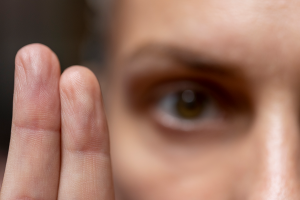Not too long ago, receiving health care through a screen seemed a bit farfetched. That goes to both mental and physical healthcare.
Well, Covid quickly changed all of that. The medical community scrambled in order to continue to help their patients and then held their collective breath to see what the results would be.
Organizations across America have been researching the matter and, at this time, we can confidently share that, when it comes to mental health matters, telehealth – or teletherapy – has been providing many types of patient benefits.
“There have been studies showing that virtual cognitive behavioural therapy (CBT) has really good results for people with depression.” Dr. Paula Zimbrean, Yale Medicine psychiatrist.
Benefits include:
Increased access to providers – No longer are patients geographically tied to professionals in their own back yard. While some prefer face-to-face, those willing to communicate electronically have opened a whole new world of provider options.
Increased access to services – Along with those new providers come access to new services, treatment plans, and experience levels.
Scheduling flexibility – Removing the drive times before and after an appointment increases the number of appointment options in a patient’s typical week. And being able to watch a youngster while meeting with a therapist reduces costs and scheduling complexity.
Transportation barriers – We may take our transportation situation for granted, but many patients don’t have access to on-demand transportation. Teletherapy removes that important barrier.
Insight into the home environment – Online sessions sometimes allow for a peak into a patient’s home environment, which is a rare and special opportunity. It helps paint the picture in ways that are often impossible in the office setting.
A natural for the younger generations – Younger generations have grown up with this technology and seem to naturally take to online sessions just fine. It does depend upon age, however, as some research is suggesting that teletherapy works better with pre-teens and teens than those under 10.
There are a few drawbacks to teletherapy. Therapists report a reduction in physical cues and therapeutic silence (those quiet pauses). And, some patients react differently to web-based sessions resulting in a potentially reduced sense of connection between the therapist and patient.
“I don’t think the mental health system will ever go back to all in-person sessions …” Paul Desan, MD, PhD, Director of Psychiatric Consultation Service at Yale New Haven Hospital
Whether you seek teletherapy or in-person treatment is, of course, a personal matter. If you have questions about teletherapy please reach out to us and it would be our pleasure to provide the information you need to make a good decision.
Birmingham Anxiety & Trauma Therapy provides both in-person and virtual therapy sessions. Contact us to learn more. We are located near Birmingham, Alabama and can assist anyone across Alabama.







